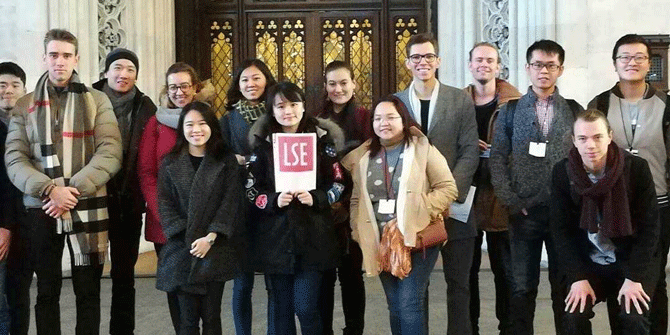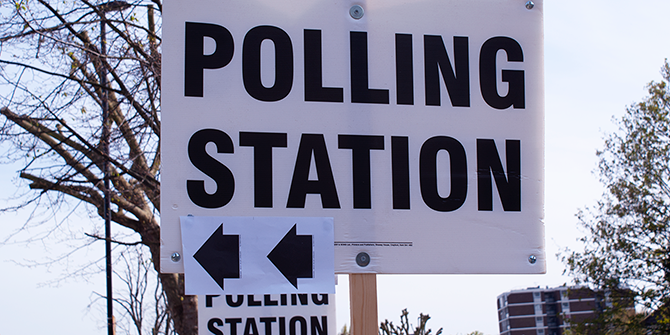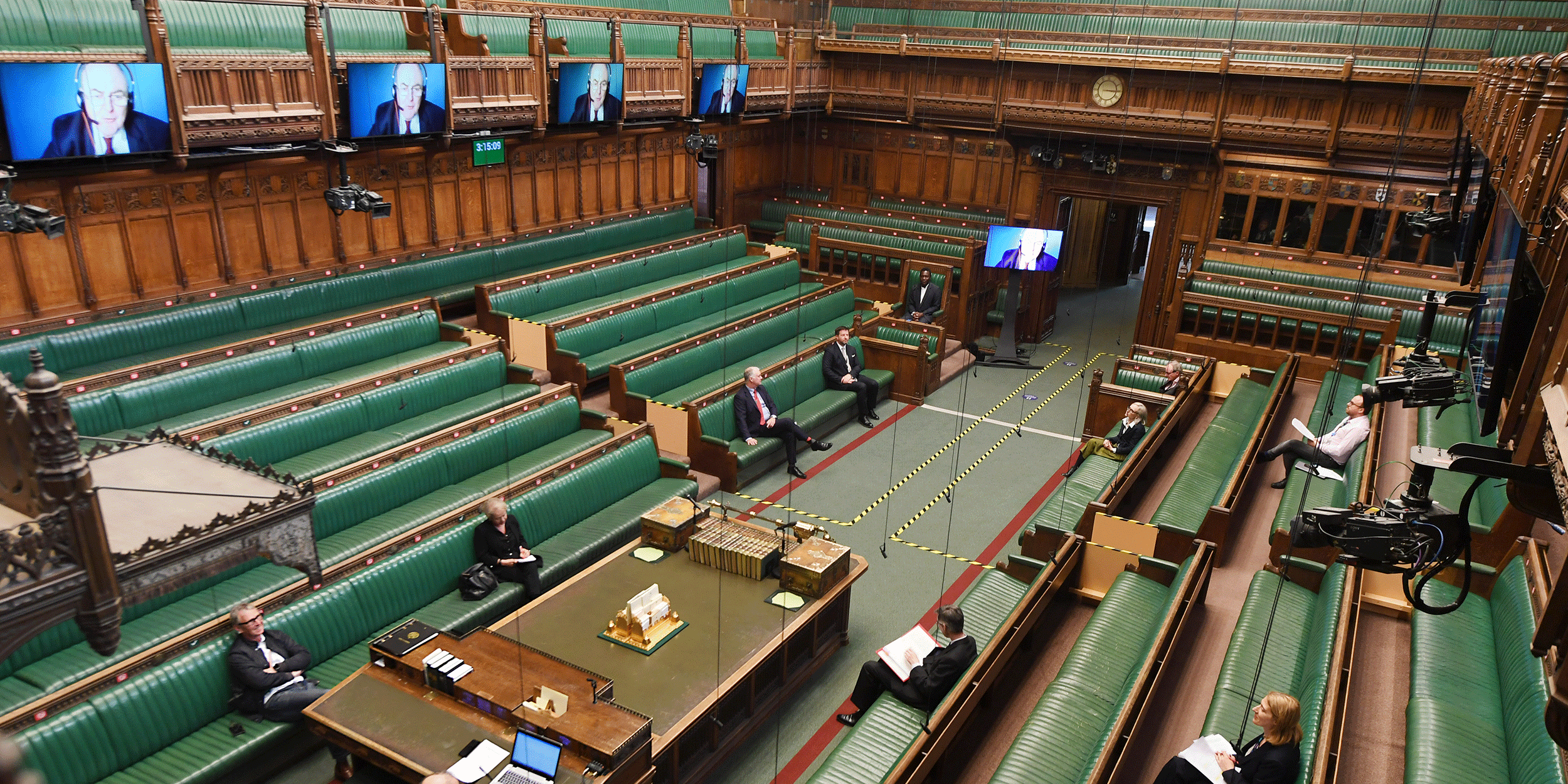
Martin Rogers analyses the upcoming EU referendum and highlights that certain demographic groups may be pivotal to the outcome.
The referendum on Britain’s membership of the European Union is currently dominating British politics and could be the single most important issue for Britain’s medium and long term future. It may be that fear of the unknown decides the referendum, but it appears that some voters see themselves as having very little to lose. This indicates that these voters may be crucial to the outcome as successfully appealing to such voters, or dissuading them from voting to leave, may win the referendum for Remain. However, the more important issue is that in the longer term (and regardless of the outcome of the referendum) there are some groups in Britain who feel that they gain little from the current state of play. They appear to think that they have little or nothing to lose by voting to change things, in this case by leaving the EU. The same pattern was evident in the Scottish Independence referendum where many poorer people tended to favour independence.
Demographic splits
One of the most important outcomes of the polling on the EU referendum is that it uncovers a clear demographic split: the well-off are far more likely to want to remain in the EU than poorer voters. This is reflective of deeper issues within Britain and could be hugely significant because it implies that a substantial portion of the country feel that they have nothing to lose by voting for a change.
Age
There are a number of ways in which British voters are split over Europe. Age is significant: older voters tend to favour Britain leaving and are more likely to vote. One YouGov poll published in February shows that 55% of over 65 year old’s sampled want to leave the EU. This rises to 67% if those who say they would not vote or that they ‘don’t know’ are excluded. By contrast, 27% of respondents over the age of 65 wish to remain, rising to 33% when excluding ‘don’t knows’. The figure for 18-24 year old’s, when excluding ‘don’t knows’, is 75% for remain. These figures indicate that the age group most likely to vote (65+) overwhelmingly wants to leave whilst the group least likely to vote (18-24) remains overwhelmingly convinced of the merits of staying. Which voters turn out to vote will therefore be critical to the outcome of the poll.
Social class
Of greater interest than the age split is division along lines of social class. Current polling shows that poorer people, and those without degrees, are far more likely to favour Britain leaving the EU than staying. Whilst polls and pollsters have faced criticism as a result of their inaccuracy regarding the 2015 General Election, evidence from the Scottish independence referendum and the British Social Attitudes Survey confirms the same pattern. Excluding those who say that they ‘don’t know,’ people in the C2DE social group favour Britain leaving 61% to 39%.
Another poll by ComRes for ITV news published in March gives a similar picture. Here, 59% of C2 voters and 46% of DE voters sampled supported Brexit. For AB and C1 voters, support for Brexit was 29% and 35% respectively. Subsequent polls in early May and mid-May have further confirmed this picture. The link between class and voting is such that polling organisations have begun to use social class to determine likelihood to vote, with positive results. This is relevant because it may be that those who feel that they have benefitted from the status quo are more likely to take part in procedures such as voting.
It is interesting to note that group C2 encompasses “skilled manual workers”, D covers “Semi-skilled and unskilled manual workers” whilst all recipients of pensions are in group E, regardless of prior social grade or income. This is unlikely to influence the overall picture as group E is only around 9% of the total population, but it may partially explain these findings. If pension recipients could be removed and the results examined without them, findings may be different and would be determined only by social class which may show slightly different results.
Educational attainment
In terms of educational attainment the split is just as stark. Work for the British Attitude Survey showed that 78% of respondents with degrees were in favour of remaining in the EU as against 35% of those with no formal qualifications. John Curtis’ publication ‘Britain Divided’ uses evidence from the British Social Attitude Survey and the British Election Study to demonstrate the existence of “…a social division between those who enjoy the economic status and cultural capital afforded to those who do well in the country’s educational system and those who do not.”
Such findings should not be a surprise given that the pro-leave UK Independence Party tends to draw a great deal of its support from “older, working-class, white voters with few educational qualifications”. What matters here is why this is the case. Given that poorer people tended to favour Scottish independence, it seems that across Britain those with degrees tend to do well from the current state of affairs and want to see it continue. On the other hand, there are those who feel that they are getting a raw deal and have nothing to lose by making a change.
Short term issue, long term consequences
Given current difficulties faced by relatively young people in accessing affordable housing and finding jobs that they want, it is possible that these long term factors may play a role in deciding the outcome of the referendum. Even those with degrees, more likely than average to favour remaining, may look to the possibility of house prices falling in the aftermath of a vote to leave and conclude that supporting a change is a risk with less downside. This is because while those with degrees tend to favour staying in, they may feel that there is less to lose if they feel locked out of an important aspect of their lives, such as owning a home.
The outcome of the referendum is a short term issue with longer term consequences. The social difference the vote uncovers is of the greatest interest. Having a distinct group within the country that feels it has nothing left to lose by ‘leaping into the unknown’ is of far greater long term concern than the outcome of the referendum itself.
 For the latest analysis of 2016’s electoral contests, go to UK Elections 2016 on GovBlog.
For the latest analysis of 2016’s electoral contests, go to UK Elections 2016 on GovBlog.
 Martin Rogers is a recent graduate of the Department of Social Policy at the LSE and host of the LSE Department of Government’s video series The HotSeat
Martin Rogers is a recent graduate of the Department of Social Policy at the LSE and host of the LSE Department of Government’s video series The HotSeat
Follow Martin on Twitter – @MNBRogers





